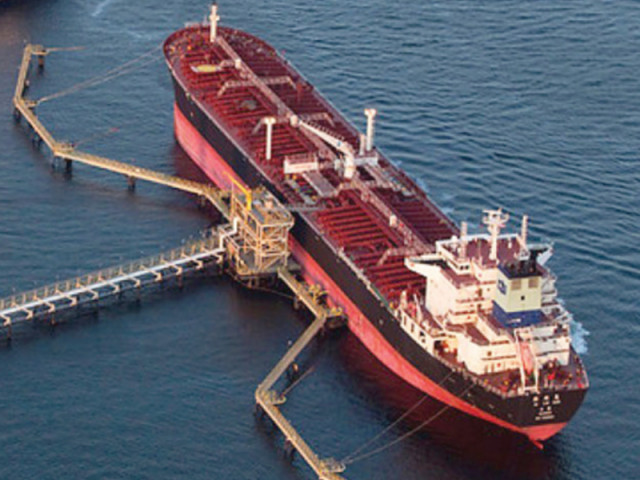Cost-cutting: Government planning to cut oil imports to ease off pressure
ECC agrees to avoid overstocking petroleum products.

Every year, the country consumes 22 million tons of petroleum products, of which about 13 million tons are imported. Oil imports cost between $14 and $15 billion. PHOTO: FILE
The government is planning to slash import of petroleum products, which eat up a huge chunk of foreign exchange every year, to ease pressure on fast depleting foreign reserves.
On September 4, stock of petroleum products stood at a level that could meet the country’s needs for 85 days.
“Imports of petroleum, oil and lubricants (POL) should be rationalised through appropriate spread of letters of credit to ensure presence of stocks for 60 to 70 days so as to avoid unnecessary blocking of foreign exchange due to overstocking,” the Economic Coordination Committee (ECC) said in a meeting held on September 7.

The ECC noted that the International Monetary Fund (IMF) had approved a loan of $6.68 billion, of which $550 million had already been received as a first tranche, improving foreign reserves of the country. Pakistan approached the IMF to cushion the reserves in the face of hefty debt repayments.
Foreign exchange reserves held by the State Bank of Pakistan (SBP) stood at $4.6 billion whereas scheduled banks had $5.2 billion. Total reserves were $9.8 billion on September 5 this year.
Every year, the country consumes 22 million tons of petroleum products, of which about 13 million tons are imported. In addition to this, oil refineries import nine million tons of crude oil per annum to meet refining requirements. Oil imports cost between $14 and $15 billion.
According to an official associated with the oil industry, Pakistan was holding diesel stocks for 50 days but due to economic slowdown, its consumption had dropped. On the other hand, demand for petrol had jumped in the wake of frequent closure of compressed natural gas (CNG) stations because of gas outages.
Talking to The Express Tribune, Pakistan Refinery Limited Managing Director Aftab Hussain said weak demand for diesel amid slow economic activity had made it tough for refineries to reduce high stocks of the product. “The refineries are now operating below capacity,” he said.
In the ECC meeting, the participants reviewed stock position of different commodities. On August 28, the country had 7.043 million tons of wheat sufficient to meet day-to-day requirements of flour mills.
Sugar stock on September 3 stood at 2.129 million tons whereas petroleum products were enough for 85 days of requirements.
The ECC agreed that fertiliser stock would easily meet needs of farmers in the 2013 sowing season and reserves would improve further after arrival of imported fertiliser by the end of September.
However, the ECC was concerned that total exports had been hovering around $25 billion annually for the last five years and had not been diversified. It stressed that value addition in export surplus, identifying unconventional goods for export and tapping new markets were necessary for giving a boost to overseas sales.
Published in The Express Tribune, September 20th, 2013.
Like Business on Facebook, follow @TribuneBiz on Twitter to stay informed and join in the conversation.



















COMMENTS
Comments are moderated and generally will be posted if they are on-topic and not abusive.
For more information, please see our Comments FAQ